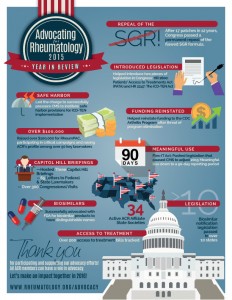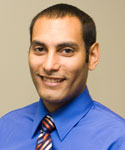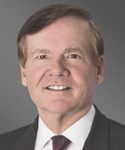The 2015 ACR/ARHP Annual Meeting in San Francisco, Nov. 6–10, is now over and was quite an event—our largest ever. The range of scientific and educational opportunities seemed overwhelming—as it always does—and none of us ever has the time to attend every session we want.
Of course, some of you stayed home with your practices and patients. And I want to take a few moments to provide a virtual guided tour of some of the wide range of advocacy sessions that took place at the meeting. Many of these sessions are available on SessionSelect.
On Sunday, Nov. 8, we had our annual Legislative Update session. I started the session with an overview of the problem of rising drug prices and our patients’ inability to afford treatments. The session included an update on the ACR-drafted Patients’ Access to Treatment Act (H.R. 1600), which would eliminate specialty tiers and replace them with a percentage-cost-sharing model. We have 95 co-sponsors for the bill in the House and have had a number of fruitful meetings to advance it over the next year.
We also had a wonderful speaker, Assemblyman David Chiu, who represents much of San Francisco in the California State Assembly. He spoke about a number of issues that need to be addressed in health care. He also provided details about a bill he has introduced in California that would require some transparency around how pharmaceutical manufacturers derive their pricing. He called on organized medicine to get into the debate about the rising cost of medications and told us that our voice was missing in the conversation in terms of how costs affect our ability to treat patients.
We ended Sunday’s session with a brief review of other ACR advocacy activities, including our progress on dealing with unfair insurance practices, the shortages of pediatric subspecialists and the strong prospects for increased NIH funding.
 From SGR repeal to a safe harbor period for the implementation of ICD-10, ACR/ARHP members have made a huge difference on Capitol Hill and in local constituencies. You can view a handy infographic (right) showing everything our advocates have done in 2015.
From SGR repeal to a safe harbor period for the implementation of ICD-10, ACR/ARHP members have made a huge difference on Capitol Hill and in local constituencies. You can view a handy infographic (right) showing everything our advocates have done in 2015.
Perhaps the most pressing part of the update was in relation to the Medicare Access and CHIP Reauthorization Act (MACRA), which replaced the failed SGR. As I have discussed in prior columns, many parts of this plan still need to be implemented by regulators, who have not always understood to a sufficient degree how their choices affect doctors and patients. We will be spending a large amount of time and resources engaging with regulators to proactively address our concerns. To this end, the ACR has contracted additional regulatory lobbying support.
At the meeting, our other advocacy session included two presentations. First, former U.S. Sen. Tim Hutchinson (R-Ark.) gave another exciting presentation on the importance of advocacy. He emphasized the need to personalize our messages to members of Congress and the need to engage at both state and local levels. He told the story of a physician constituent of his who never once came to D.C., but who invited Sen. Hutchinson to his practice back home. Sen. Hutchinson got to know him so well that when he had a question about something that would affect health care, the senator would call this constituent and ask for his thoughts. This physician became a key contact for the senator.
To fill this very need, the ACR has launched its Key Contacts program. Many of you already have personal relationships with members of Congress, perhaps in areas outside of medicine. Others lack the resources and know-how to establish that connection. The ACR wants to help.
Our second speaker was Kristen Burke of Schmidt Public Affairs, an expert in social media who shared her thoughts about using Facebook and Twitter to reach Congress. She discussed a surprising result from a survey of Capitol Hill staff, which revealed that only a relatively small number of tweets or Facebook posts about an issue is enough to prompt them to explore an issue. Ms. Burke also demonstrated our new outreach platform, VoterVoice. Through either the ACR website or a downloadable app for iPhone and Android, members can connect with the ACR to learn about the issues we’re working on, send messages to their elected officials and register for our Key Contacts program. You can also sign up to receive action alerts (not too many, I promise!) about important issues and when we need you to act.
This year has already seen its share of political fireworks. From Speaker John Boehner’s resignation to the averted debt-ceiling crisis, it’s been a busy fall in Washington, D.C. As we head into what promises to be an exciting election year, we cannot lose sight of our objectives or stop pressing for changes that have to happen to our healthcare system. In years like this, it’s sometimes difficult to engage in controversial discussions with our government officials. Sometimes, it’s easy because those debates happen in front of a primetime TV audience, as commentary about drug pricing has been in the last two presidential debates.
Regardless, we need to double our efforts. We have to maintain our will to fight for what is in the best interest of our profession and patients. I look forward to another 365 days of continuous advocacy until we gather for the 2016 ACR/ARHP Annual Meeting in Washington, D.C., barely a week after the presidential election. Please reach out to me if you have issues for us to address, and get involved by signing up with VoterVoice. I certainly have the drive to carry on the fight and hope you will join me.
Will Harvey, MD
Chair, ACR Government Affairs Committee
Twitter: @TheresAWillMD



